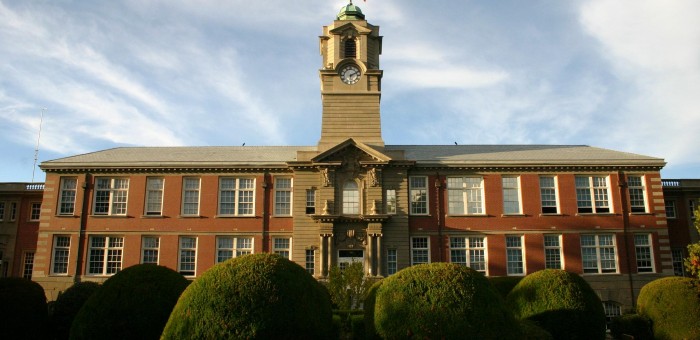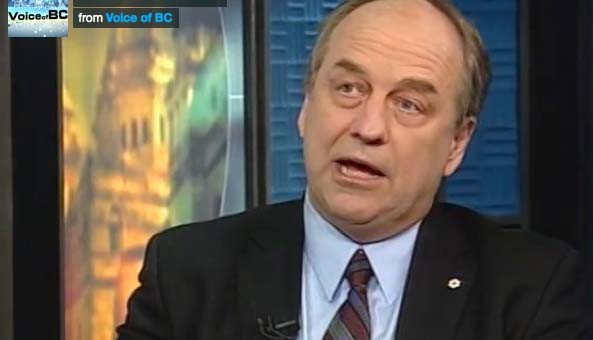Media
Congratulations to Sherri Bell on becoming Camosun College president
Media Statement: April 23, 2015
Andrew Weaver Welcoming Appointment of Sherri Bell as Camosun College President
For Immediate Release
Victoria B.C. – Andrew Weaver, MLA for Oak Bay – Gordon Head and Deputy Leader of the B.C. Green party welcomes the appointment of Ms. Sherri Bell as the new President of Camosun College. Ms. Bell has served as the Superintendent of School District 61 since March of 2014 following the retirement of John Gaiptman, She brings a wealth of experience to her new position from both the K-12 and post-secondary levels including time as principal in Lake Cowichan and James Bay Community School in Victoria, and as an instructor and practicum supervisor at the University of Victoria. Since 2001 she has worked in administration in the Greater Victoria district.
“This is tremendous news for Camosun College and the Greater Victoria community” said Andrew Weaver. “Sherri Bell is an outstanding and inspirational educator and administrator. Her professional achievements and experience will be a fabulous asset supporting the extraordinary work of the students, staff and faculty at Camosun and I congratulate Sherri on what really is a distinguished appointment”
Sherri Bell will be taking over from interim President Peter Lockie.
-30-
Media Contact
Mat Wright – Press Secretary, Andrew Weaver MLA
Mat.Wright@leg.bc.ca
Cell: 1 250 216 3382
Voice of BC with Guest Host Keith Baldrey
On Thursday April 2, 2015, Adam Olsen and I were on Voice of BC with guest host Keith Baldrey. We discussed a number of issues including MSP Premiums, BC’s Treaty Commission, Vancouver’s Transit referndum, BC’s controversial wolf cull, the Kinder Morgan pipeline proposal and more.
Introducing a Bill to End Trophy Killing of Grizzly Bears
Media Statement: March 2, 2015
MLA Weaver Introduces Bill to End Trophy Killing of Grizzly Bears
For Immediate Release
Victoria B.C. – Today, Andrew Weaver, MLA for Oak Bay-Gordon Head and Deputy Leader of the B.C. Green Party, tabled his first private members bill with the aim of providing government with the tools it needs to end the trophy killing of grizzly bears in the Province of British Columbia.
“This bill is about supporting sustainable, respectful hunting practices in B.C.,” says Andrew Weaver. “It is about putting B.C. hunters first and taking clear steps towards ending the trophy killing of grizzly bears in our province.”
If enacted, this Bill would add additional requirements to hunting in B.C. First, it would remove grizzly bears from the list of animals exempt from meat harvesting regulations. Hunters are already required to remove the edible portions from black bears. This bill would bring meat harvesting standards for grizzly bears up to the same level.
Second, it would ensure that all edible portions of animals harvested in B.C. are taken directly to the hunter’s residence. This provision is meant to limit foreign hunters’ ability to come to B.C. for the purpose of trophy hunting, by making them responsible for removing the meat of any animal they kill.
For local sustenance hunters – the vast majority of hunters in B.C. – this bill merely echoes what they are already doing: harvesting wild game to feed their families. For non-resident trophy hunters coming to B.C. to kill an animal only for its hide, skull, or antlers, this Bill would create new complexities and logistical barriers.
A 2013 McAllister Research poll found that 88% of British Columbians oppose trophy hunting. In addition to that, 95% of hunters said they believe you should not be hunting if you are not prepared to eat what you kill.
“Earlier this year, the government began allocating more hunting opportunities to guide outfitters at the expense of B.C. Hunters,” says Weaver. “We need to pressure this government to recommit to putting the interests of British Columbians first, by rebalancing the new allocation policy in favour of B.C. hunters and by passing this Bill.
“The Federation appreciates the support of MLA Andrew Weaver on wildlife allocation, harvest, and sustainability issues,” says George Wilson, B.C. Wildlife Federation president.
Weaver also presented the House with a 16,139 signature petition from the B.C. Wildlife Federation opposing the permit allocation amendments and spoke to several hundred B.C. hunters a rally today in front of the legislature.
-30-
Media Contact
Mat Wright — Press Secretary – Andrew Weaver MLA
Cell: 250 216 3382
Mat.wright@leg.bc.ca
Unanswered Questions Remain After final Responses from Trans Mountain
Yesterday I submitted a motion to the National Energy Board asking it to compel Trans Mountain to provide full and adequate responses to my second and final round of questions in the hearing process.
The complete 2015-02-26 – MLA Weaver Motion on Adequacy of IR 2 Answers submission raises a number of key issues. Three examples serve to illustrate the additional information we are seeking.
- Trans Mountain applied “risk reduction factors” in their risk analysis when certain conditions were met. For example, a risk reduction factor of 2 is applied to tethered escort tugs responding to prevent a powered grounding incident. We asked Trans Mountain to provide us with a formal validation of these numbers. These reduction factors play a critical role in the risk analysis and the chosen values need to be grounded in evidence. I do not believe that asserting them to be appropriate justifies them being appropriate.
- I asked a simple question. Please provide a list of any and all equipment owned and operated by Western Canada Marine Response Corporation (WCMRC) to recover sunken oil. In response, Trans Mountain asserted that diluted bitumen would not sink (despite the existence of evidence to the contrary). I was not provided with a list of equipment.
- We asked Trans Mountain about the worst case wind scenarios that were used in their human health risk assessment. They responded that they chose certain conditions that represent the greatest potential ecological damage. Since we’re talking about a human health impact assessment, Trans Mountain’s claim that they chose certain conditions that represent the greatest potential ecological damage is not answering whether the scenario for both Arachne Reef and Westridge terminal constitute worst case scenarios in terms of impact on human health.
The press release that we issued at the time is reproduced below.
Media Statement: February 27, 2015
MLA Weaver: Unanswered questions remain after final responses from Trans Mountain
For Immediate Release
Victoria B.C. – Andrew Weaver, MLA for Oak Bay-Gordon Head and Deputy Leader of the B.C. Green Party has submitted a motion to the National Energy Board (NEB), asking it to compel Trans Mountain to provide full and adequate responses to his second and final round of questions in the hearing process.
Dr. Weaver is challenging roughly a third of the nearly 100 questions he submitted. He put forth his motion on the basis that the answers were incomplete or did not respond to his question.
“While there’s no doubt that overall the answers I received this time around were more substantive than last time, it’s still disappointing that in a number of cases I failed to receive full and adequate responses to basic questions about the Trans Mountain proposal,” says Andrew Weaver. “I submitted this motion because my constituents are concerned about increased tanker traffic just offshore of our riding and they deserve answers.”
The second round of Information Requests marks the final opportunity intervenors will have to test the evidence submitted by Trans Mountain in its proposal. Dr. Weaver’s questions focus on human health risks associated with the project and follow-up on his previous questions relating to the risks, impacts and response capacity associated with a potential oil spill.
Intervenors have been increasingly critical of the hearing process, noting that the absence of oral cross-examination has seriously undermined their ability to receive answers to even the most basic questions about the pipeline proposal.
During the first round, Dr. Weaver challenged roughly a third of the answers he received to his nearly 500 questions. Intervenors collectively challenged more than 2000 answers with the NEB ruling in intervenors’ favour fewer than 5% of the time.
“I have concerns that this whole hearing process is being treated as a box-ticking exercise. In the first round of questions, I didn’t receive substantive answers to many of my questions and the NEB didn’t seem particularly interested in supporting us to ensure we received full and complete responses. I hope that this time it is different. “
In light of escalating issues with the process, Andrew Weaver continues to call on the B.C. Government to pull out of the Environmental Assessment Equivalency Agreement that it signed with the Federal Government and hold its own, independent hearing process.
-30-
Media Contact
Mat Wright – Press Secretary, Andrew Weaver MLA
mat.wright@leg.bc.ca
1 250 216 3382
Moving Forward with MSP Premium Reforms
On Monday, February 23 2015, I tabled the BC Green Party petition of 6,662 British Columbians calling on the government to replace the regressive MSP premium poll tax with a more fair and equitable option to fund health care services in British Columbia.
Today in the legislature I was up during Question Period. I used this opportunity to question government on the possibility of empowering the Select Standing Committee on Health to examine innovative, progressive ways of revising how MSP premiums are charged in British Columbia?
As you will see from the exchange below, I was pleasantly surprised by the answer that I received. My response to the Minister’s use of a quote from Tommy Douglas is that Quebec and Ontario bring Health Care Premiums into their progressive income tax system as a line item that shows people what they are paying.
QUESTION
A. Weaver: In early January the good health committee at the Monterey seniors’ centre invited me to a conversation on health care. Collectively, these seniors were profoundly concerned about the impact that our regressive approach of charging flat-rate MSP premiums was having on their ability to make ends meet. And this is in the rather affluent riding of Oak Bay–Gordon Head.
Since raising this issue last month, I have heard from thousands of British Columbians who agree with me that it’s time to replace MSP premiums with a fair and equitable option. Fortunately, just yesterday the Government House Leader activated the Select Standing Committee on Health, a committee that could be empowered to examine this issue.
My question to the Minister of Finance is this: will he empower the Select Standing Committee on Health to examine innovative, progressive ways of revising how MSP premiums are charged in British Columbia?
RESPONSE
Hon. M. de Jong: Thanks to the member for the question. There will, through the estimates process, be an opportunity to discuss the question of the amount we collect and some of the relief that exists for almost a million British Columbians from paying full premiums. The member’s question is more specific, and that is whether or not this is a legitimate or appropriate topic for discussion by the committee.
I took the liberty of quickly checking the terms of reference. I think the power exists now. I think the committee, charged as it is to examine the projected impact of the provincial health care system on demographic trends to the year 2036 on a sustainable health care system for British Columbians…. Similarly, the motion that was before the House just a few days ago asked the committee to “outline potential alternative strategies to mitigate the impact of the significant cost drivers” identified in the original report and “consider health capital funding options.”
I think that’s probably sufficiently broad for members of the committee, and those that they might invite in, to have the kind of conversation that the member is alluding to, and it will be interesting to see what results from that conversation.
SUPPLEMENTARY QUESTION
A. Weaver: I must admit I was not expecting that answer. I am pleasantly surprised, and I’m thrilled that the committee will, I hope, seek and explore means and ways of funding the MSP premium more progressively.
The reason why I’m asking this is that the time is right. The Maximus contract was renewed in 2013. I recognize there was a five-year renewable clause in it. Now is the time to work with Maximus to find new ways of not only saving government money — because this is about efficiency as much as it is about delivering services to people who can afford it, with means and ways that allow them to have these services affordably — but it’s about making it fair. It’s about bringing the revenue generation into the income tax system.
So my question to the minister is this. Will the minister consider, as every other province in the country does, bringing in our funding to MSP premiums through the income tax system, whether it be as a line item or as part of general revenues, to avoid the unnecessary bureaucracy associated with chasing after people who have recently lost their jobs and are being charged premiums based on last year’s income tax rate, chasing people who didn’t know they actually had to pay premiums because they are living abroad and so on? Will the minister consider this approach of using our income tax system for actually raising these premiums?
RESPONSE
Hon. M. de Jong: Two things come to mind. I don’t want to prejudge or presuppose what the committee might present in terms of thoughts or recommendations on this. I confess to a certain bias, and that runs counter to the suggestion that the member has offered about eliminating a very specific charge, tax levy, in favour of general taxation provisions.
If the committee is going to have the conversation…. I ran across this in anticipation of some of the conversations, and I wonder if I can share it with the House. It’s from a former Member of Parliament from B.C., an NDP Member of Parliament, who said this:
“I want to say that I think there is value in having every family and every individual make some individual contribution. I think it has psychological value. I think it keeps the public aware of the cost and gives the people a sense of personal responsibility.
I would say to members of this House that even if we could finance the plan without a per capita tax, I personally would strongly advise against it. I would like it to be a nominal tax, but I think there is psychological value in people paying something for their cards.“
That wasn’t just any Member of Parliament. Before he was a Member of Parliament he was the Premier of Saskatchewan. That was Tommy Douglas in 1961, addressing a special session that created.
I hope the committee will be mindful of all of these ideas as it considers these matters.
Following Question Period, we issued a media release on the exchange. It is reproduced below.
Media Release
Media Statement: February 26, 2015
Health Committee Empowered to Examine MSP Premium Reform
For Immediate Release
Victoria B.C. – Today, in response to a question from Andrew Weaver, MLA for Oak Bay-Gordon Head and Deputy Leader of the B.C. Green Party, the Government House Leader and Minister of Finance agreed that the Select Standing Committee on Health would have the power to examine progressive ways of financing the Medical Services Plan and report on its findings.
“There are clear, progressive alternatives to MSP premiums that would be efficient, cost effective and affordable,” said Andrew Weaver. “I was pleasantly surprised that the Minister agreed that part of the Committees mandate could be to examine these alternatives.”
Currently, British Columbia is the only province in Canada charging a separate, flat-rate fee for medical premiums. The MSP rate is rising under the 2015 Budget by 4% – from $72 to $75 per month for individuals and from $130.50 to $136 for families. The same fee applies to anyone, whether they earn $30,000 or $3,000,000 in a year.
In contrast, both Ontario and Quebec made medical premiums a line item in their personal income tax return. By doing so, they maintained an essential revenue source for health care while reducing the burden on low and fixed income individuals.
MSP premiums are forecast to bring in nearly $2.3 billion in the 2014/15 fiscal year approaching the amount of revenue that is accrued from corporate income taxes. Reforming how this revenue is collected by, for instance, making MSP a line-item in the annual personal income tax return, would turn this regressive tax into one that is fairly applied based on income, while saving costs associated with administration and non-payment collection.
“I understand that the government has concerns about how changes to this tax would affect their financial objectives,” said Andrew Weaver. “Empowering one of our standing committees allows these objectives to be preserved, while also exploring how MSP Premiums can be made to be more affordable for British Columbians. I look forward to presenting practical alternatives to this committee and working with them to bring reform to the way MSP Premiums are charged in our Province.”
-30-
Media Contact
Mat Wright – Press Secretary, Andrew Weaver MLA
Mat.Wright@leg.bc.ca
Cell: 1 250 216 3382








